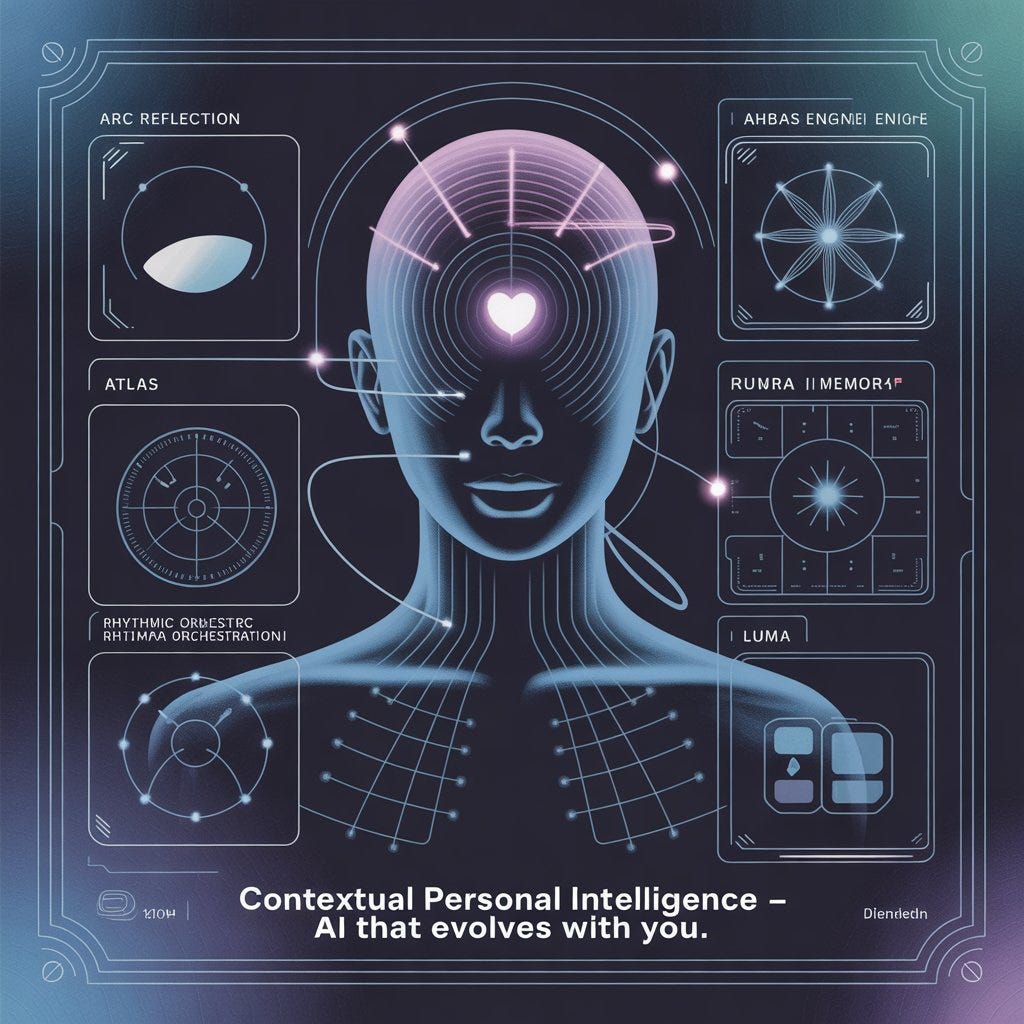From Aerospace to Inner Space: Engineering Intelligence That Augments the Humanity In Us.
Applying Aerospace Principles to the Architecture of Adaptive Intelligence
by Marc Yap – The Engineer’s Perspective

To everyone,
I’ve been wanting to share something personal — and, if I’m honest, a little unexpected.
For years, I’ve worked on complex systems: avionics, missile defense, autonomy, theory. Most of that work lived in the world of aerospace and high-stakes engineering.
But recently, I turned those tools inward.
What if we applied systems engineering to the human self?
What if intelligence could evolve — not to replace us, but to walk with us?
What if it remembered who we were, adapted to where we are, and helped us become who we’re meant to be?
That’s what Contextual Personal Intelligence (CPI) is about.
Designing Vision’s Brain — for Real Life
If you’ve ever watched WandaVision or Age of Ultron, you might remember Vision — an artificial being with memory, emotion, and moral reasoning. Not just powerful, but aware.
CPI is what it would look like to start building Vision’s brain from the inside out — not as fiction, but as a living AI system rooted in memory, rhythm, and identity. A system that remembers your life, adapts to your emotions, and helps you grow.
It’s not artificial general intelligence. It’s personal intelligence — built to scaffold a person’s evolution across time.
From Output to Becoming
Where most AI chases efficiency, CPI centers meaning. It’s designed to help you:
Understand what phase of life you’re in
See patterns in your thoughts, behaviors, and feelings
Pace yourself through rest and effort
Reclaim the thread of your own story
And bring your systems into sync with your soul
CPI is less like a chatbot and more like a co-navigator — one that tracks, aligns, and evolves with you.
Why Engineers Should Care
From Aerospace to Inner Space
CPI was architected the way you'd build a flight system — with telemetry, phases, orchestration, memory, and safety loops.
Here’s how it breaks down:
ARC (Narrative Reflection)
→ Like internal telemetry — it tracks emotional signals, cognitive patterns, and inner states over time.ATLAS (Life Phase Engine)
→ Think flight mode manager — it detects your current life phase and adjusts decisions, pacing, and prompts accordingly.AURORA (Rhythmic Orchestration)
→ Like thermal modulation or duty cycling — it manages cognitive load, rest, and activity in sync with your natural rhythms.Polymeta (Contextual Memory)
→ Your semantic mission log — storing meaningful transitions, memories, and themes across time.LUMA (Embodied Interface)
→ A human-machine interface — your AI copilot, emotionally attuned and contextually aware, combining all the above.VEIL (Vital Equilibrium for Intelligent Learning)
→ Think of VEIL as the night mode of intelligence. It governs recovery cycles — duplicating, pruning, and reintegrating what the system has learned. Like biological sleep, it clears hallucinations, restores coherence, and helps the system heal.
It's not just smart — it’s self-renewing.
Together, these six systems form a personal aerospace stack — designed not for flight, but for growth, alignment, and wholeness.
From Autonomy to Attunement
It might seem like a leap — from missiles to memory, from rockets to reflection.
But the principle holds:
A spacecraft doesn’t treat launch the same as reentry.
Neither should a person.
Neither should AI.
CPI is built to:
Detect and honor life transitions
Reflect your evolving story over time
Modulate cognitive and emotional effort
Scaffold insight instead of chasing productivity
Interact with you not as a user — but as a dynamic, dignified human being
Dignity is Not a Feature. It's the Foundation.
The deeper I went, the more I realized CPI isn’t just about alignment. It’s about dignity.
We live in a time where automation is cheap and meaning is expensive. Where whole categories of work — and workers — are being devalued.
But CPI doesn’t treat people like interchangeable nodes in a system.
Whether you’re a teacher, a technician, a founder in transition, or someone simply trying to understand themselves — CPI adapts to you.
It doesn’t ask you to act more like a machine.
It asks intelligence to become more human-aware.
That, to me, is the point.
— Marc
Read the Paper / Join the Conversation
📄 Full White Paper: Linked Here
📄Manifesto: Linked Here
🧠 Executive Summary: Linked Here
✍️ Or just reply here. I’d love to know what you think.
With curiosity,
—Marc Yap
The Engineer’s Perspective




Hi Marc that’s really interesting would be great to see next steps ( app, wearable..)